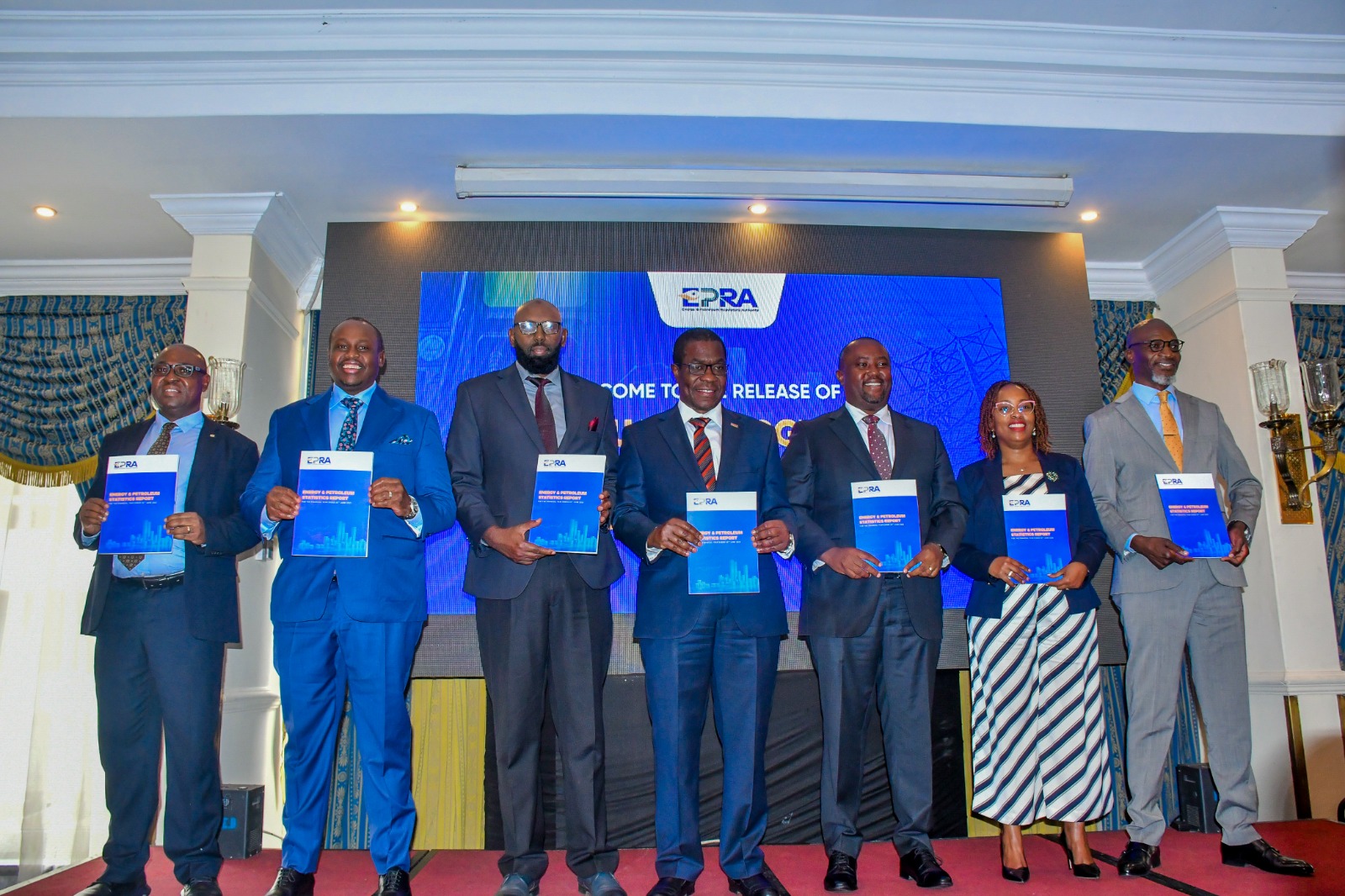 Energy Cabinet Secretary Opiyo Wandayi (centre) with stakeholders during the launch of the Energy and Petroleum Statistics Report 2025/HANDOUT
Energy Cabinet Secretary Opiyo Wandayi (centre) with stakeholders during the launch of the Energy and Petroleum Statistics Report 2025/HANDOUTThe Government of Kenya has reaffirmed its commitment to ensuring energy security and sustainability, with a bold ambition to achieve 100 percent clean energy in the coming years.
Energy Cabinet Secretary Opiyo Wandayi reiterated the pledge during the official launch of the Energy and Petroleum Statistics Report 2025, a landmark document charting the country's energy progress and future roadmap.
Speaking at the launch, Wandayi underscored the government’s vision of a green energy future, announcing the integration of nuclear power into the national energy mix.
This follows the recent approval for the construction of Kenya’s first nuclear power plant in Siaya County, with work set to begin in 2027 and the first power output expected by 2034.
“Our path to 100 percent clean energy is not just aspirational—it is achievable. Nuclear energy will play a key role in supporting our industrial and economic transformation,” said Wandayi.
Energy and Petroleum Regulatory Authority (EPRA) Director General Daniel Kiptoo provided key highlights from the report, noting that peak electricity demand has climbed to 2,316.2 MW, the highest in five years.
Domestic electricity consumption also surged by 13.03 percent, reflecting a growing and increasingly electrified economy.
Kiptoo highlighted the role of regional power interconnections with Ethiopia, Uganda, and Tanzania in strengthening supply resilience.
He also pointed to significant strides in e-mobility, where energy usage has increased by 300 percent, signaling a strong shift toward electric transportation.
“This report reveals a positive trajectory for our energy subsectors. Large-scale consumers have saved billions through the Time-of-Use tariff, and the continued growth in LPG and petroleum demand is propelling economic activity,” Kiptoo said.
According to the Nuclear Power and Energy Agency (NuPEA), Kenya must increase its energy generation capacity from the current 3,400 MW to at least 60,000 MW annually to support its industrialisation goals.
NuPEA CEO Justus A. Wabuyabo emphasised that nuclear energy will be a cornerstone of the country's energy diversification strategy.
Kenya will begin with a 1,000 MW nuclear plant, and progressively scale up to 20,000 MW by 2040 using advanced technologies such as Small Modular Reactors (SMRs).
“These reactors will make it possible for counties to access clean, safe, and secure electricity to power industries and uplift communities,” Wabuyabo stated. “It is time for Kenyans to embrace nuclear as the future of sustainable energy.”
EPRA Chairman Ali Haji praised the efforts of all
stakeholders involved in compiling the report and advancing Kenya’s energy
agenda.
“Today’s launch marks a significant milestone in our national journey. This report not only showcases our progress but highlights the challenges and opportunities ahead. Together, we power Kenya’s tomorrow,” said Haji.














